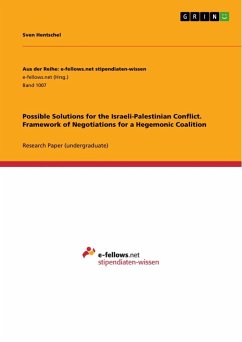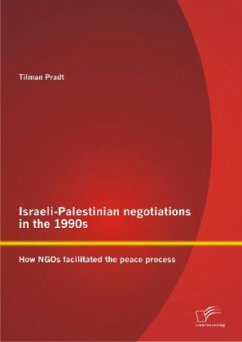
Unlocking the Palestinian-Israeli Negotiations
A Critical Review of Contemporary Literature and Methodologies

PAYBACK Punkte
19 °P sammeln!
This book offers a critical review of contemporary literature on the Palestinian-Israeli negotiations. Its goal is to highlight the shortcomings of the methods that have been used to date to analyse the underlying causes that have led to a stalemate in the negotiation process. Further, it pursues an approach that considers the multiple factors that can influence the outcomes of the negotiation process. The book represents a substantial academic contribution to the field of conflict resolution by broadening the scope of the analytical framework that is needed to analyse the Palestinian-Israeli ...
This book offers a critical review of contemporary literature on the Palestinian-Israeli negotiations. Its goal is to highlight the shortcomings of the methods that have been used to date to analyse the underlying causes that have led to a stalemate in the negotiation process. Further, it pursues an approach that considers the multiple factors that can influence the outcomes of the negotiation process. The book represents a substantial academic contribution to the field of conflict resolution by broadening the scope of the analytical framework that is needed to analyse the Palestinian-Israeli negotiations, and bridging the gap between theory and practice. Accordingly, it offers a valuable asset for researchers and students interested in political theory, Middle Eastern studies, international relations, conflict resolution studies, political science, negotiation theory, and contemporary Arab studies and Israeli studies.














